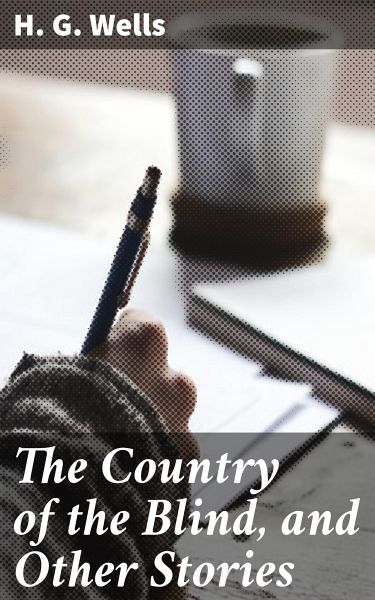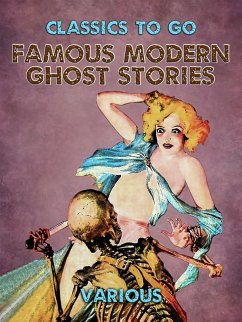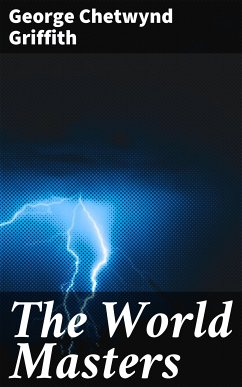
The Country of the Blind, and Other Stories (eBook, ePUB)
Exploring Evolution, Technology, and Human Nature in Wells' Classic Tales
Versandkostenfrei!
Sofort per Download lieferbar
0,49 €
inkl. MwSt.
Weitere Ausgaben:

PAYBACK Punkte
0 °P sammeln!
H. G. Wells's "The Country of the Blind, and Other Stories" is a masterful exploration of dystopian themes and the intersection of humanity with science fiction. The titular story, which presents a society of blind inhabitants and their profound philosophical implications, showcases Wells's distinctive literary style'Äîcharacterized by vivid imagery, incisive social commentary, and intricate plot development. Set against the backdrop of early 20th-century anxieties regarding technological advancement and existential crises, these narratives invite readers to reflect on society'Äôs moral la...
H. G. Wells's "The Country of the Blind, and Other Stories" is a masterful exploration of dystopian themes and the intersection of humanity with science fiction. The titular story, which presents a society of blind inhabitants and their profound philosophical implications, showcases Wells's distinctive literary style'Äîcharacterized by vivid imagery, incisive social commentary, and intricate plot development. Set against the backdrop of early 20th-century anxieties regarding technological advancement and existential crises, these narratives invite readers to reflect on society'Äôs moral landscape and the nature of perception itself. H. G. Wells, renowned as one of the pioneers of science fiction, was deeply influenced by his experiences in a rapidly industrializing world. His background in biology and his progressive political views informed his critical approach to societal norms and human conditions. These elements coalesce in this collection, where Wells deftly examines the assumptions that govern human nature and the implications of isolation amidst progress. His rich narrative style and intellectual rigor have made his works enduring classics. Readers are invited to traverse the thought-provoking realms of Wells's imagination, where each story serves as both entertainment and a harrowing reflection on the human condition. "The Country of the Blind, and Other Stories" is essential for enthusiasts of speculative literature, as it challenges perspectives and resonates with contemporary issues, ensuring its relevance within the canon of literary greats.
Dieser Download kann aus rechtlichen Gründen nur mit Rechnungsadresse in A, B, BG, CY, CZ, D, DK, EW, E, FIN, F, GR, H, IRL, I, LT, L, LR, M, NL, PL, P, R, S, SLO, SK ausgeliefert werden.












